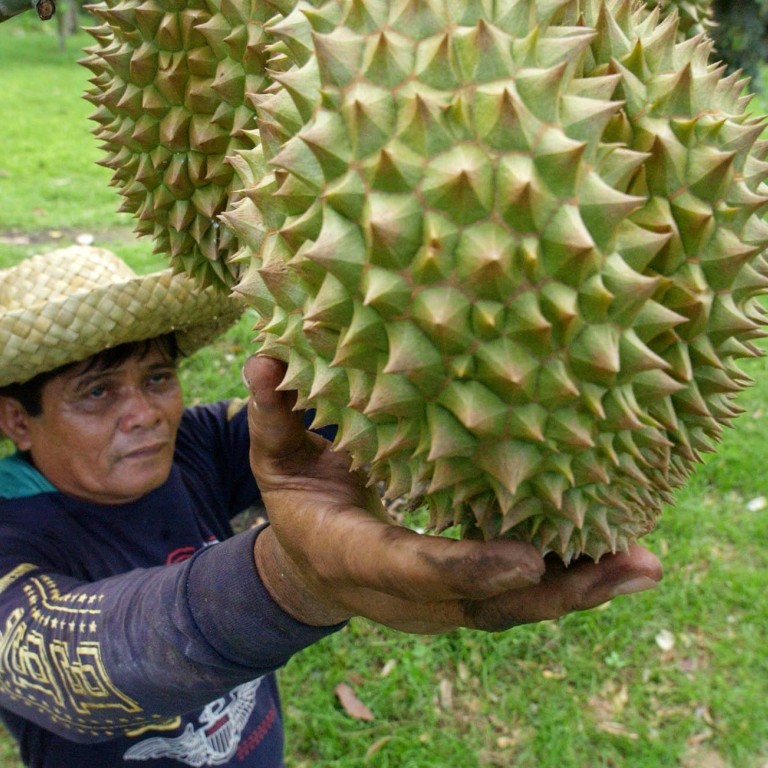
Hong Kong-Asean trade pact will open doors to richer, deeper relations
Reuben Mondejar and Rafael Nite say the city should not pass up the opportunities that come with a stronger bond
In the wake of the Occupy protests, Hong Kong is in dire need of a means to reinvent itself, and it may be able to do this by leveraging its long-standing relationship with Southeast Asia, a relationship that it has overlooked of late.
Negotiations for a free trade agreement between Hong Kong and the Association of Southeast Asian Nations have been ongoing since a first round took place last July. These talks began four years after mainland China established its own free trade agreement with Asean, with the latter opting to negotiate a separate deal with Hong Kong. The intention is for Hong Kong and Asean to close a deal next year.
The potential benefits of a free trade agreement are many. The 10 Asean states have an aggregate gross domestic product of US$2.4 trillion, as well as total trade volume amounting to US$2.5 trillion.
Meanwhile, Hong Kong presents Southeast Asia with the advantage of being a major international gateway to mainland China, particularly the Pearl River Delta - a market of 65 million people, most of them situated in southern China.
Moreover, Hong Kong offers Asean an ideal locale to do business - many multinational and mainland Chinese companies have set up shop in the region, which offers strengths in logistics, finance, shipping, services and trade - all made stable with the presence of a sound basic law system as well as sophisticated infrastructure.
Hong Kong and Southeast Asia have enjoyed a strong bond throughout most of their respective histories. The two regions have a rich history of dealings not only in business, but also cultural exchanges, knowledge transfer, and even migration of diaspora and workforce, going back hundreds of years.
Hong Kong employs many thousands of Southeast Asian migrant workers, and continues to play a significant role in the region's history and political movements, despite the SAR's relative neutrality. Key revolutionary figures of several Southeast Asian countries, such as Vietnam's Ho Chi Minh and the Philippines' Emilio Aguinaldo and Jose Rizal, have all taken up indirect refuge or sought asylum in Hong Kong at some point, as has, in more recent times, Thailand's Thaksin Shinawatra.
However, this begs the question: how might Hong Kong benefit in initiating a free trade agreement with Southeast Asia, especially as it is already a tariff-free trading port? The answer is, in several ways. First, it will be able to join a potentially powerful trade bloc that would give it more bargaining power in the global economic system.
Second, Hong Kong could benefit from closer ties to, and goodwill from, Asean, with its aggregate population of more than 600 million - comprising 8 per cent of the world total (Indonesia and the Philippines alone account for 350 million) - in an area that is flourishing as the incomes of Southeast Asian consumers steadily increase.
Third, the city offers a convenient test market for smaller Southeast Asian countries to begin tackling the Chinese market, 60 per cent of the foreign investment of which passes through Hong Kong.
To sway favour towards this potentially lucrative bond with Southeast Asia, Hong Kong should focus on propagating awareness of the region among its people, as well as marketing itself as a bona fide centre for Southeast Asian countries to transact with. As it stands, the public is relatively uninformed of the productive potential of an Asean free trade pact, and Southeast Asian nations are seen as less-attractive options for business and education among Hong Kong businesspeople and immigrants.
Southeast Asian issues get scant media coverage in Hong Kong, and this has to change to move relations forward.
Hong Kong must also recognise Southeast Asia's economic needs and see what niches it can fill. For example, global demand for Southeast Asia's exports of durians and rice, particularly from China, is growing to the point that the region cannot produce enough to fulfil requirements - an issue that could be resolved by leveraging Hong Kong's competency in supply chain management.
Lastly, the free knowledge transfer that once took place between Hong Kong and Asean, particularly Thailand, ought to begin again, perhaps in the form of university scholarships for Southeast Asian students. This long-term investment will help Hong Kong nurture a pool of bright young minds from all over Southeast Asia who can make a significant difference to the future of both Hong Kong and their home country, as opposed to simply continuing to hire migrant workers to perform what arguably amounts to menial labour.
Ultimately, closer regional economic integration with Asean would be a boon to both. Hong Kong should capitalise on this potential bond with Southeast Asia, if only in the name of establishing closer geopolitical ties to a region that might just help protect the relative autonomy that Hong Kong has long enjoyed.
